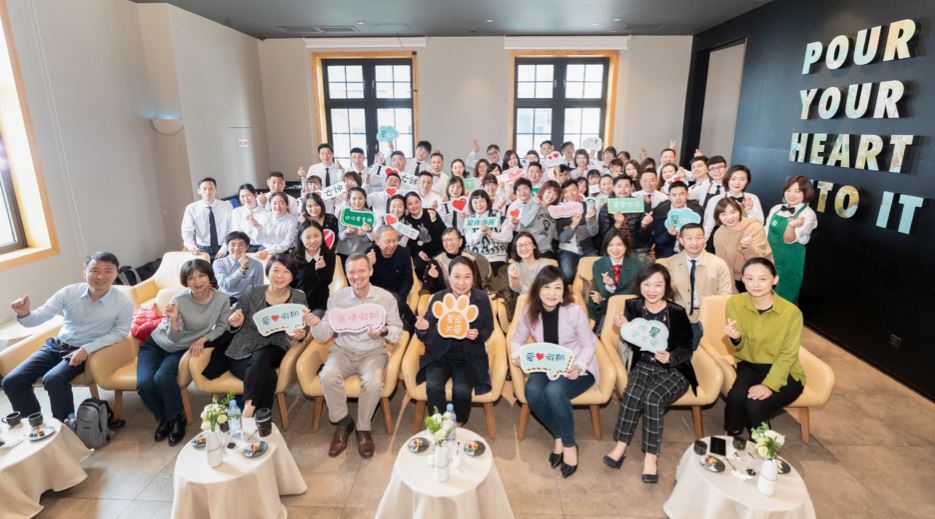
Starbucks' employees pose for a photo. (Photo provided to chinadaily.com.cn)
Starbucks China announced a new investment program on Thursday to offer more benefits, including HPV vaccination or a mini-vacation to recharge their batteries, to its employees across the country.
Named Flex Star Benefits, the world leading coffee house chains' employee benefit program offers staff members more than two years credits they can use to select from a wide range of benefits, starting January 1, 2020.
Belinda Wong, chairman and CEO, Starbucks China, said: "Starbucks success in China is down to the passion and dedication our partners (employees) bring to work every day – in every cup of coffee they brew, and every customer connection they make.
"We want to share our success with all partners, in a timely and thoughtful manner that recognizes their individual needs – because each of our 55,000 partners is special."
The Flex Star Benefits program is considered a major part of the retailer's investment in the country where it has a total number of an estimated 18,500 employees eligible for the scheme, and newly eligible employees to be enrolled every sixth months thereafter.
The new scheme includes encouraging employees to pursue their passion with their credits, such as learning a new skill or taking up a hobby.
They may also simply apply for a 5- or 10-day mini "coffee break" to recharge their batteries.
Employees can use their credits for HPV vaccinations that protect against life-threatening diseases such as cervical cancer. The benefit can be extended to employees' female family members and even friends, a first for Starbucks.
In addition, the credits can be used to upgrade employees' current benefits such as annual health checkups.
The Seattle-based company has over the years developed appreciations for the contribution of baristas, or coffee brewers, in creating an enjoyable experience for its customers.
Starbucks' cultivation of the relationships with its employees through such benefit program has also significantly reduced its employment turnover rate, which appears increasingly important in today's competitive coffee chain store industry in China.
Previously, Starbucks has introduced innovative benefits such as comprehensive insurance for the spouses and children of all employees, and critical illness insurance for parents, which has benefitted 18,500 full-time partners.
Housing subsidies are provided to 26,000 partners who work away from their hometowns, while its employees may also apply to return to work in newly opened Starbucks stores in their hometowns under the Coming Home program.
Starbucks recently named among China Best Employers for the fifth time by international human resources consultancy Aon Hewitt this year.


